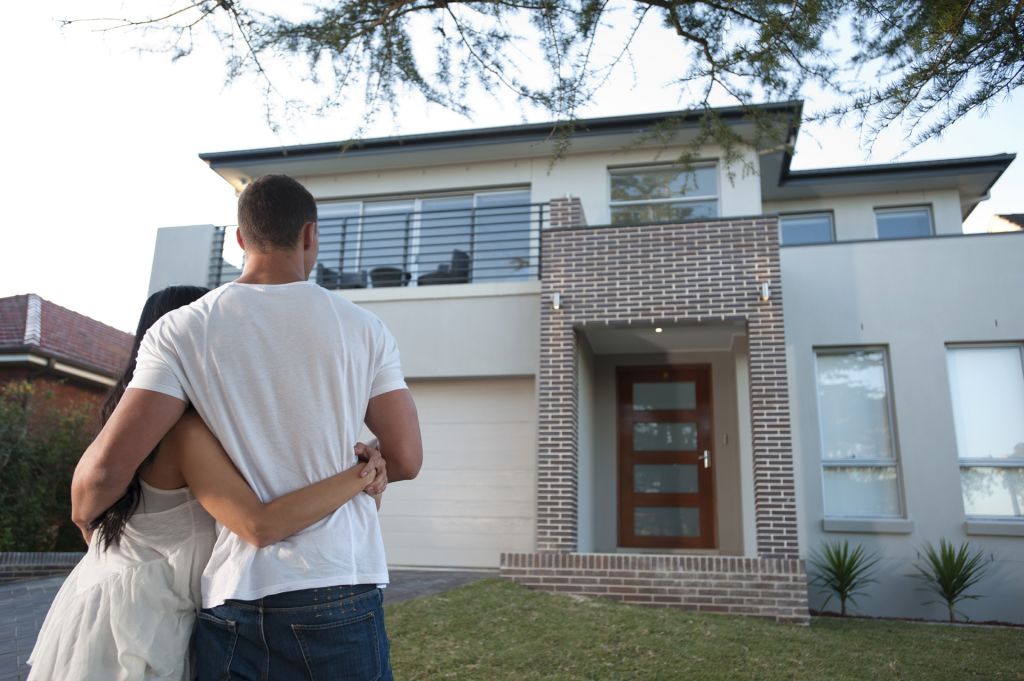What to expect at your first auction

Never been to an auction before? Never fear! Auctions aren’t as scary as many people believe. Here’s a quick run-down on what to expect when you’re looking to buy a property at auction.
The auction process
“The auction process…is the fairest and most transparent way to buy property,” says John McGrath, CEO at McGrath Estate Agents.
“Many buyers don’t see auctions this way – they perceive them as highly stressful events that lead to spur-of-the-moment decisions based on emotions rather than sensibility. This only happens when people are unprepared.”
If you’ve ever bought or sold goods on eBay or at furniture/car/jewellery/antique auctions, you’ll know how the process works. Registered bidders are able to openly compete for the property once one buyer has offered a starting bid.
The auction continues until the highest bid is received, or until the property passes in (whereby the vendor declines to sell at the highest price offered) and negotiations with the highest bidder begin in earnest.

As Mr McGrath points out, there are actually many benefits to buyers when buying at auction: “You know what the competing offer is at all times, unlike private treaty negotiations; you can see your competition and read their body language; the price is benchmarked in public; [and you get] an immediate result.”
When it comes to bidding at auction, be very clear about your intentions.
“If you’re going to start the bidding, start low. Project confidence to make the other bidders think you have no limit. Make your bids fast and assertive. And call out your offer in full instead of the increments,” Mr McGrath advises.
Be prepared
Preparation is always the key to success at auction, so that you can be confident in your bidding.
Mr McGrath advises the following when you’re vying for a property scheduled for auction:
- You can make an offer prior to auction but you risk paying more than you need to.
- Use your research and budget to help you identify a ‘walk-away’ price.
- Organise any amendments to the contract, such as a longer settlement period, prior to the auction.
- Have your finance already in place and attend the auction ready to write a deposit cheque.
- Attend some auctions beforehand to experience the atmosphere and observe different bidding strategies.
What if things go wrong?
Like everything in life, property auctions don’t always go to plan, even despite the best of intentions. The most common of these is that the property passes in (doesn’t sell). You may also find that the guide price and vendor’s reserve are exceeded, or in rare instances that bidding has been pushed up artificially.
Should the property not sell under the hammer, don’t think you have missed out. As Mr McGrath explains: “If it’s going to pass in, make sure you are the highest bidder, as this usually allows first right to negotiate. Whether this is a legal right or courtesy varies between states.”
Particularly in booming markets, properties can sell at auction well above the guide price and the vendor’s reserve. It doesn’t necessarily mean you’ve been cheated; other buyers could just be willing to pay more for the property than you are.

If you do suspect the use of fake bids at the auction (a process known as dummy bidding) or underquoting of the guide price before auction day, you can lodge a complaint with the Office of Fair Trading or equivalent body in your state or territory. Real estate agents and auctioneers are highly regulated, and must operate within the law. Sadly there are unethical agents out there, but the industry does receive an unfair amount of criticism, as there are rogue operators in every industry.
As Mr McGrath points out, the ultimate result on auction day can boil down to nothing more than fate: “I’ve seen many underbidders walk away miserable only to find a more suitable property just a few weeks later. If you miss a property at auction, accept that it wasn’t meant to be and look forward to finding something better soon.”
As with any property purchase, don’t get swept up in the auction process and blow your budget. Do your homework, bid with confidence and be satisfied with the result, no matter the outcome!
We recommend
States
Capital Cities
Capital Cities - Rentals
Popular Areas
Allhomes
More








